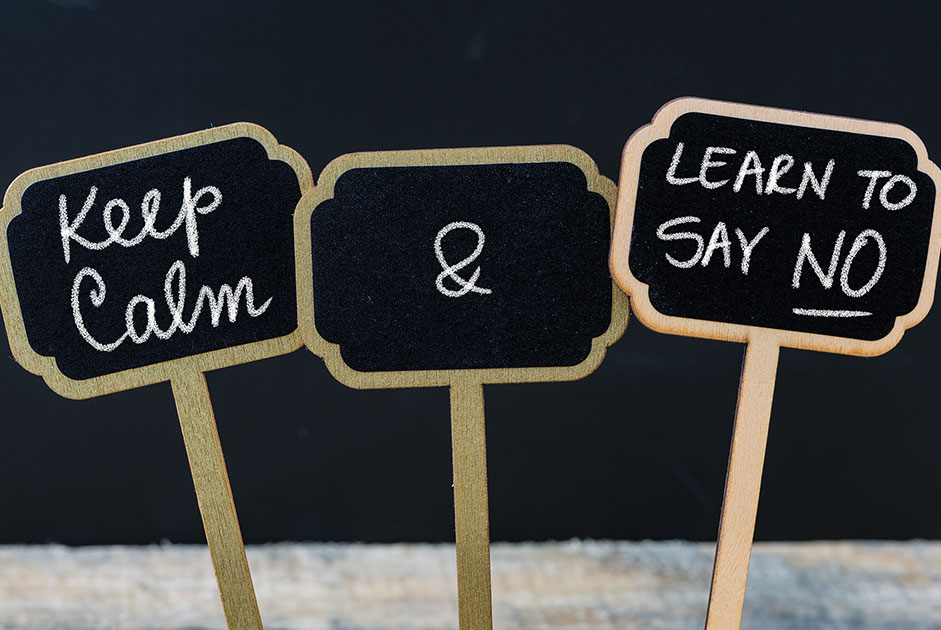BY MEGAN TAYLOR
For some people, saying “no” can be hard and uncomfortable. Some people automatically say “yes” when asked to do something, take on a responsibility or obligation, or add more to their schedule. Oftentimes a person believes they must accept everything they are asked to do, because they feel they can do it all. However, this mentality can add stress and can cause the person to suffer physically, emotionally, and mentally. It can be hard to do, but there are ways a person can set boundaries for themselves. Boundaries in work, relationships, and life in general are necessary for a person’s health and happiness. Here’s how to set boundaries without feeling guilty for saying “no.”
- Know your limits and top priorities. Make a list of what is already on your plate and prioritize things that are the most important to you. For example, family, leisure time, a hobby, etc. could be on your list. Also, understand your limits, physically, emotionally, and mentally. Listen to your mind and body. If you are having trouble staying awake, concentrating, etc., know it may be time to wrap up for a bit until you are refreshed to continue on. Think about your body as your cell phone. Your phone doesn’t work when its battery is dead, so why do you expect your body to do the same when you are stressed and low on sleep? Self-care is very important.
- Be clear about your boundaries and stick with them. This doesn’t mean you have to be offensive or disrespectful towards others when stating your limits. It does mean for you to stay strong and not give in to other people’s requests. You are the person who knows what is best for you, so why not say it? Create an open dialogue and communication with your family, friends, colleagues, etc., when asked to add something to your schedule or change something.
- Give yourself grace. This is a lesson you could use in all aspects of your life. Give yourself permission to feel fear, failure, guilt, and self-doubt, and understand that you may receive some of these feelings back from other people. Dr. Dana Gionta states in an article for PsychCentral that, “We might fear the other person’s response if we set and enforce our boundaries. We might feel guilty by speaking up or saying no to a family member. Many believe they should be able to cope with a situation or say yes because they’re a good daughter or son, even though they feel drained or taken advantage of…Boundaries are a sign of self-respect.”
- Become self-aware of your thoughts and emotions. Think about how you are feeling when you are overworked and stressed and compare it to how you feel when you are relaxed. Take inventory of those emotions. Also, take notice of what happens to those you most care about when you take on too much. When you find yourself in saying “yes” situations, reflect on your thoughts and emotions. You may find yourself becoming irritable and short-tempered with the ones you care about the most. Change what you need to change to get on a better track.
- Seek support. This can be a hard habit to break and can be difficult at first. Develop a support group for yourself. Your support could be a support group, counseling, family, or friends. With your group, make it a priority to set boundaries together and hold each other accountable for them.
Start small when you set boundaries for yourself. This can be an overwhelming task to break. However, in the end, you’ll be glad that you did. Saying “yes” can be positive at times, just be careful to not overdo it.


















